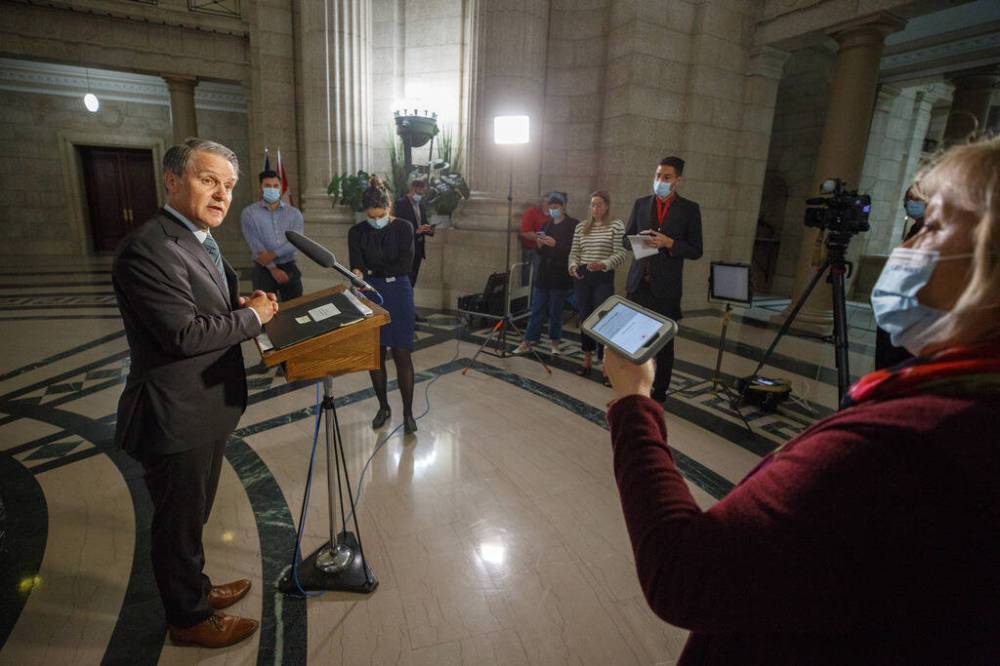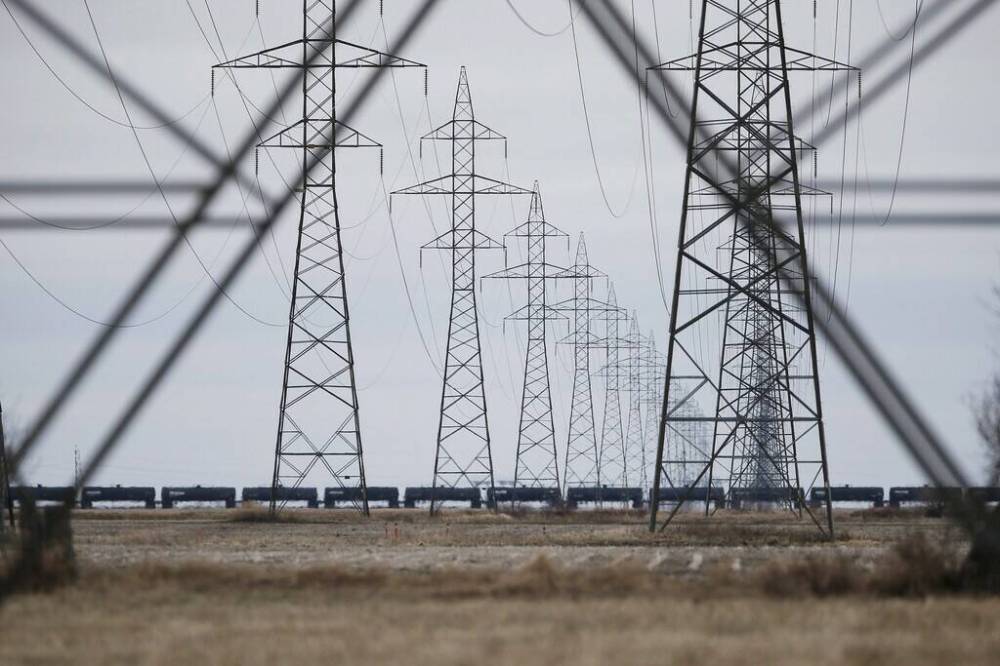Protect the PUB rallying cry seeks to add voices
Read this article for free:
or
Already have an account? Log in here »
To continue reading, please subscribe:
Monthly Digital Subscription
$0 for the first 4 weeks*
- Enjoy unlimited reading on winnipegfreepress.com
- Read the E-Edition, our digital replica newspaper
- Access News Break, our award-winning app
- Play interactive puzzles
*No charge for 4 weeks then price increases to the regular rate of $19.00 plus GST every four weeks. Offer available to new and qualified returning subscribers only. Cancel any time.
Monthly Digital Subscription
$4.75/week*
- Enjoy unlimited reading on winnipegfreepress.com
- Read the E-Edition, our digital replica newspaper
- Access News Break, our award-winning app
- Play interactive puzzles
*Billed as $19 plus GST every four weeks. Cancel any time.
To continue reading, please subscribe:
Add Free Press access to your Brandon Sun subscription for only an additional
$1 for the first 4 weeks*
*Your next subscription payment will increase by $1.00 and you will be charged $16.99 plus GST for four weeks. After four weeks, your payment will increase to $23.99 plus GST every four weeks.
Read unlimited articles for free today:
or
Already have an account? Log in here »
Hey there, time traveller!
This article was published 31/05/2022 (1290 days ago), so information in it may no longer be current.
Manitoba Energy Justice Coalition is raising the alarm over proposed legislation it says will muzzle and defang the province’s public utilities watchdog.
Bill 36 (Manitoba Hydro Amendment and Public Utilities Board Amendment Act) threatens one of the best systems in Canada for setting energy rates, according to the group’s “Protect the PUB” campaign to have the Progressive Conservative government kill the bill.
The advocacy alliance says it’s as bad for Manitobans as the widely-unpopular Bill 64 (Education Modernization Act) the PCs withdrew last fall.
“I don’t view this as a political issue,” Alex Buchner of the Manitoba Energy Justice Coalition said in an interview Tuesday. “We’re talking about preserving an independent, fair, rate-setting process in Manitoba.
“I don’t view this as a political issue… We’re talking about preserving an independent, fair, rate-setting process in Manitoba.” – Alex Buchner
“We’re talking about transparent and accountable government processes — and that’s not an issue that is the purview of one party or the other. These are kind of universal values that, hopefully, both conservatives and progressive people share.”
Bill 36 is one of five the Opposition NDP was able to hold over until fall to allow for more time for public review.
Finance Minister Cameron Friesen said Tuesday the legislation is designed to keep electricity rates low in Manitoba, stabilize the debt-ridden Crown corporation and prevent a repeat of Bipole III and Keeyask generating station megaproject over-runs (that cost $3.7 billion more to build than initially budgeted).

“We have to plan carefully for the future,” Friesen told reporters in a scrum. “The hydro advantage is no good to any of us if Hydro isn’t around to deliver that good advantage. Our plan is to stabilize Manitoba Hydro.”
The new bill caps electricity rate increases at five per cent rate per year or the annual rate of inflation, whichever is less.
At the same time, however, it imposes debt-to-equity targets (80 per cent by 2035 and 70 per cent by 2040) Manitoba Hydro must meet by generating enough revenue through rates it charges and export sales.
When approving rates, the PUB is to be guided by Treasury Board-approved capital expenditure programs and government directives issued to Hydro, debt-to-capitalization targets, “and any additional financial targets established by regulation,” Bill 36 says.
“Targets are fine,” said Buchner. “The question is: should they be legislated and are these specific targets reasonable or not?
“There hasn’t really been a lot of discussion around what the ideal financial target should be and also what the timeline should be.”
“There hasn’t really been a lot of discussion around what the ideal financial target should be and also what the timeline should be.” – Alex Buchner
Hydro needs a “prudent debt management program,” agreed Buchner, who questioned the need to put a financial squeeze on a publicly-owned corporation. There needs be a balance between Hydro’s financial stability and the pocketbooks of Manitobans, he added
The bill also calls for electricity rate applications every three years, rather than annually, starting in 2025. The PC government has been calling for multi-year rate setting since it introduced a similar bill in in 2020 (Public Utilities Ratepayer Protection and Regulatory Reform Act). It called for rate reviews by the PUB every five years; it was also killed by the PCs last fall.
“Multi-year rate setting is not something that is completely crazy, in my view,” Buchner said. “What I don’t like about this bill is that it dictates how the Public Utilities Board must arrive at its decisions and, in fact, bans them from commenting or critiquing on the regulations or mandate letters that are imposed on them or any other Crown corporation.
“It really creates this open-ended regulatory system that allows the government to set the terms by which they arrive at their decisions — and they don’t have to justify that before the legislative assembly.”
With rising energy prices and global uncertainty, Manitobans needs the full power of the PUB in their corner, Buchner said.
“The utilities board process provides a lot of value for Manitobans.”

The coalition that includes Hydro-impacted communities and a union, as well as anti-poverty and environmental groups, is urging those who want to protect the PUB to register to speak to the bill when it gets to the committee stage.
“We’re hoping to kind of build a broad coalition of people who think this is important,” said Buchner.
Last year, more than 500 presenters registered to speak to Bill 64 that aimed to eliminate elected school trustees, before the PCs withdrew the proposed legislation.
By the end of Monday, five were registered to speak to the committee about Bill 36.
carol.sanders@freepress.mb.ca


Our newsroom depends on a growing audience of readers to power our journalism. If you are not a paid reader, please consider becoming a subscriber.
Our newsroom depends on its audience of readers to power our journalism. Thank you for your support.








